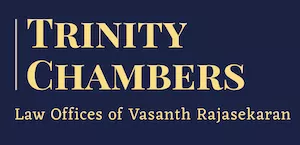- within Litigation and Mediation & Arbitration topic(s)
- in Europe
- with readers working within the Retail & Leisure and Law Firm industries
- in Europe
- in Europe
- in Europe
- within Government, Public Sector, Insolvency/Bankruptcy/Re-Structuring and Real Estate and Construction topic(s)
- with readers working within the Law Firm industries
Introduction
The Supreme Court in State of Uttar Pradesh v. R.K. Pandey [2025:INSC:48] delivered an important ruling addressing the fraudulent invocation of arbitration proceedings and the unilateral appointment of arbitrators. The case involved ex parte arbitration awards secured by the respondent, R.K. Pandey, based on an arbitration agreement the very existence of which was contested.
The Supreme Court held that the arbitration proceedings were a sham, vitiated by fraud, and that the awards were null and void ab initio. The judgment reiterates the fundamental principle that arbitration, as an alternative dispute resolution mechanism, cannot be misused to perpetrate legal fraud. In this article, we navigate through the facts of the case and the findings rendered by the Supreme Court.
Brief Facts
The dispute arose from the employment of Respondent as a Lab Assistant at the Dina Nath Parbati Bangla Infectious Disease Hospital in Kanpur, which was initially managed by the Kanpur Municipal Board. In 1956, the State of Uttar Pradesh took over the hospital with the aim of establishing a new medical college. Subsequently, the staff of the hospital, including the respondent, was absorbed into the State Government's employment, with an assurance that their service conditions would not be adversely affected.
Upon reaching the age of superannuation, Respondent was informed that he would retire at 58, in accordance with State Government service rules. He filed a writ petition before the Allahabad High Court in 1997, claiming that he was entitled to continue in service until 60, relying on the service rules applicable to municipal employees before the hospital's takeover. While the writ petition remained pending for several years, Respondent took a parallel route by initiating arbitration proceedings based on an alleged arbitration agreement dated 1 April 1957. In 2008, he unilaterally appointed two arbitrators at different times, who rendered ex parte awards in his favour, awarding him substantial sums along with high rates of interest.
When the State Government challenged the awards in execution proceedings, it discovered that the arbitration agreement was neither part of the official records nor acknowledged by the State or the Kanpur Municipal Board. The State contended that the entire arbitration process was fraudulent and sought to have the awards set aside.
Arguments from Both Sides
The State of Uttar Pradesh argued that the arbitration agreement was fabricated and that no such agreement was part of the official records. It pointed out that Respondent had never relied on the arbitration clause in his earlier writ petition, and its sudden emergence decades later raised serious concerns about its authenticity. The State also contended that the unilateral appointment of arbitrators by the respondent violated the fundamental principles of arbitration law. It relied on Central Organisation for Railway Electrification v. ECI-SPIC-SMO-MCPL (JV), 2024 INSC 857, where the Supreme Court underscored the need for impartial and independently appointed arbitrators.
Additionally, the State argued that the arbitration awards were unenforceable as they were obtained through fraudulent means. It cited Bilkis Yakub Rasool v. Union of India, (2024) 5 SCC 481, in which the Supreme Court reiterated that fraud vitiates all legal proceedings. Since the arbitration process in this case was initiated unilaterally and the alleged agreement could not be traced to any official records, the awards were void ab initio.
On the other hand, Respondent contended that the arbitration clause was valid and binding, and since the State had failed to nominate an arbitrator, he had the right to appoint one unilaterally. He relied on the alleged agreement of 1957, arguing that the hospital's takeover did not extinguish the arbitration clause. He further submitted that the State had failed to challenge the awards within the prescribed limitation period under Section 34 of the Arbitration and Conciliation Act, 1996 ("A&C Act"), making the awards final and binding.
Findings of the Supreme Court
The Supreme Court thoroughly examined the records and found that the arbitration agreement relied upon by Respondent was not part of any official documents of the State Government or the Municipal Board. It noted that there was no reference to such an agreement in the hospital's transfer deed executed in 1961. The Supreme Court also found it highly suspicious that the arbitration clause was never mentioned in any earlier legal proceedings, including the writ petition filed by Respondent himself.
The Supreme Court reaffirmed that arbitration rests on the principle of party autonomy, and an arbitration agreement must be proved to exist before an arbitral process can be initiated. Since neither the State nor the Municipal Board acknowledged the agreement, the arbitration proceedings were conducted without jurisdiction. Referring to State of West Bengal v. Associated Contractors, (2015) 1 SCC 32, the Supreme Court held that an arbitration agreement must be legally recognised and cannot be fabricated to secure an ex parte award.
Furthermore, the Supreme Court strongly criticised the unilateral appointment of arbitrators by Respondent. It observed that arbitration law requires mutuality and adherence to due process. The Supreme Court held that the appointments were legally untenable, rendering the awards non est. It cited Perkins Eastman Architects DPC v. HSCC (India) Ltd., (2020) 20 SCC 760, which ruled that unilateral appointment of arbitrators is contrary to principles of natural justice.
The Supreme Court also rejected Respondent's argument regarding the limitation period for challenging the awards. It held that when an arbitration award is obtained through fraud, limitation principles do not apply. It relied on Vijay Karia v. Prysmian Cavi E Sistemi SRL, (2020) 11 SCC 1, which recognised that fraudulent awards can be challenged at any stage, including during execution proceedings.
Ultimately, the Supreme Court set aside both arbitration awards, declaring them null and void. It held that the entire arbitration process was a sham and that no enforceable rights had been created in favour of Respondent. The execution proceedings initiated by him were also dismissed, and the State Government was awarded costs for the litigation.
Comment
This judgment is a stark reminder that arbitration, while offering an efficient dispute resolution mechanism, cannot be used as a tool for perpetrating legal fraud. The Supreme Court has once again reinforced the principle that an arbitration agreement must be real, valid, and mutually accepted. The ruling also highlights the dangers of allowing ex parte awards based on unilateral appointments, which run contrary to the fundamental tenets of arbitration law.
The content of this article is intended to provide a general guide to the subject matter. Specialist advice should be sought about your specific circumstances.



